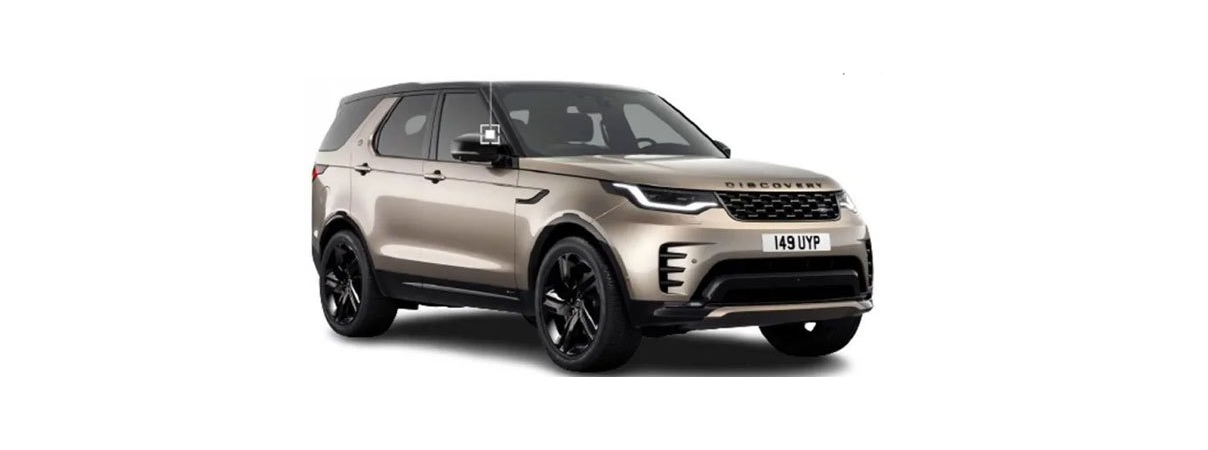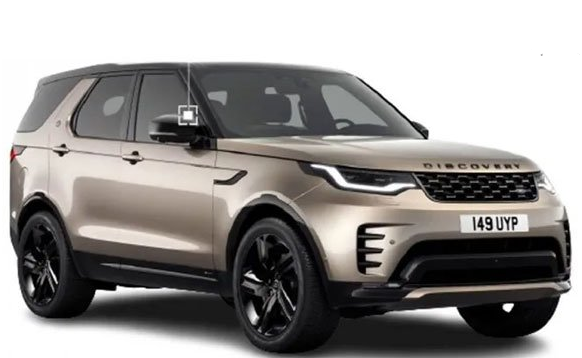2023 Land Rover Discovery Sport STARTING THE ENGINE Owners Manual




2023 Land Rover Discovery Sport STARTING THE ENGINE


STARTING SAFETY
Never start the engine and leave it running when the vehicle is in an enclosed space. Exhaust gases are poisonous and can cause unconsciousness and death if inhaled.
If the engine fails to start, do not continue cranking, as this discharges the battery. The catalytic converter may also be damaged due to unburnt fuel passing through the exhaust.
On some engine variants, the engine automatically shuts down if left running for a prolonged period. Before the engine shuts down, the instrument panel displays a warning message. The warning message provides an opportunity for the driver to press the brake pedal to keep the engine running.
STARTING THE ENGINE
Make sure the relevant safety warnings have been read and understood before starting the vehicle. See STARTING SAFETY.
To start the engine:
- Make sure a valid smart key is inside the vehicle.
- Make sure Park (P) or Neutral (N) is selected.
- Press the brake pedal firmly.
- Press and release the engine START/STOP button. See DRIVER CONTROLS.
Once the engine starts, release the brake pedal, if it is safe to do so.
Gasoline engines only: When starting the engine, the idle speed may rise. The rise in idle speed helps the engine reach its optimum operating temperature quickly, improving fuel efficiency.
If the vehicle is left in a driveable condition with the engine running, the driver exit feature does not prevent the vehicle from moving. Always make sure the vehicle is not left in a driveable condition, as serious injury or death may occur. See DRIVER EXIT.
SWITCHING OFF THE ENGINE
Before switching off the engine, it is recommended that the vehicle is stationary. Make sure the Electric Parking Brake (EPB) is applied and the transmission is in Park (P).
Press and release the engine START/STOP button.
The engine now stops. The vehicle’s ignition system also switches off.
To switch off the engine while the vehicle is moving:
|When the vehicle is moving, it is not advisable to switch off the engine. However, if a situation arises where engine switch-off is urgent, the following procedure applies:
- Press and hold the engine START/STOP button for longer than 2 seconds, or
- Press and release the engine START/STOP button twice within 3 seconds.
With either method, the instrument panel displays the message Engine Stop Button Pressed.
SWITCHING ON THE IGNITION
To switch on the vehicle’s ignition system without starting the engine:
- Make sure that a valid smart key is inside the vehicle and that the brake pedal is not pressed. CAUTION
If the brake pedal is pressed when the engine START/STOP button is pressed, the engine starts. - Press and hold the engine START/STOP button until the instrument panel warning lamps illuminate.
- Release the engine START/STOP button.
ROLLING RESTART
If the engine is switched off while the vehicle is moving, a rolling restart can be initiated. Select Neutral (N) and press the engine START/STOP button.
The engine START/STOP button is inhibited for 2 seconds after the engine has been switched off.
ENGINE START BACKUP
The engine start backup procedure is used to disarm the alarm and start the engine if either of the following occurs:
- The vehicle is unlocked using the emergency key blade.
- The vehicle does not detect the smart key.
The engine start backup procedure can only be used when the instrument panel displays Place Smart Key as shown, and press the start button.
To carry out the engine start backup procedure:
- Position the smart key flat against the underside of the steering column, with the buttons facing downward. NOTES
There are markings on the steering column to help locate the correct position. - While holding the smart key in position, firmly press the brake pedal.
- Press and release the engine START/STOP button.
Once the engine starts, release the brake pedal, if it is safe to do so.
If the smart key is not recognized, or the engine fails to start, consult a retailer/authorized repairer.
IF THE ENGINE FAILS TO START
Make sure the relevant safety warnings have been read and understood before starting the vehicle. See STARTING SAFETY.
Seek qualified assistance if the vehicle has been in a recent collision and the engine fails to start when the START/STOP button is pressed. Damage to the vehicle may have occurred.
If the engine fails to start, and a valid smart key is inside the vehicle, a check must be made to determine the cause. To do this:
- Switch on the vehicle’s ignition. See SWITCHING ON THE IGNITION.
- Check the instrument panel for messages and any illuminated warning lamps. Seek qualified assistance, if necessary. See WARNING LAMPS AND INDICATORS and WARNING AND INFORMATION MESSAGES.
- Switch off the vehicle’s ignition.
Alternatively, if the engine fails to start, the alarm system may need to be reset. To reset the alarm system, lock and unlock the vehicle. See SMART KEY OPERATION.
If the engine still fails to start, consult a retailer/authorized repairer.
If the engine persistently fails to start, carry out the following steps:
- Make sure that a valid smart key is inside the vehicle.
- Make sure that Park (P) or Neutral (N) is selected.
- Press and hold the engine START/STOP button until the warning lamps in the instrument panel illuminate.
- Firmly press the brake pedal.
- Slowly press the accelerator pedal, and hold it in the fully pressed position.
- Press and release the engine START/STOP button. The engine begins to crank.
- Release the accelerator pedal when the engine starts.
Once the engine starts, release the brake pedal, if it is safe to do so.
If the engine still fails to start, consult a retailer/authorized repairer.
ENGINE PRE-HEATER
The fitting of an engine pre-heater does not eliminate the need for antifreeze. Damage may be caused to the engine if the correct mixture of antifreeze is not present.
Engines are more difficult to start when the ambient temperature is very low. In geographical areas where temperatures below 14°F (-10°C) are experienced frequently, it is advisable to fit an engine pre-heater. The pre-heater has an insulated connector at the front of the vehicle, which is connected to the main supply using a suitable extension cable. The pre-heater can remain in use overnight if required. Typically, an engine pre-heater uses between 0.4 and 1 kWh.
For further information, consult a retailer/authorized repairer.
Recent Posts
VW Jetta Engine Fuse Box Diagram
Access the comprehensive 2010-2018 VW Jetta Passenger Fuse Box Diagram to troubleshoot electrical issues effectively.…
VW Jetta Passenger Fuse Box Diagram
Explore the comprehensive VW Jetta Passenger Fuse Box Diagram to troubleshoot electrical issues effectively. Understand…
2023 Ford F-150 Lightning Fuse Box Diagram
Under Hood Fuse Box Location Remove the front luggage compartment cover. Under Hood Fuse Box…
2022 Kawasaki NINJA H2 SX SE Brake Lever Adjuster Owner’s Manual
2022 Kawasaki NINJA H2 SX SE Brake Lever Adjuster Owner's Manual NOTICE Only adjust the front…
2023 Land Rover Range Rover Evoque Exiting The Vehicle Owners Manual
2023 Land Rover Range Rover Evoque Exiting The Vehicle SINGLE LOCKING WARNING Before exiting the…
2023 Land Rover Range Rover Evoque Front Seats Owners Manual
2023 Land Rover Range Rover Evoque Front Seats FRONT SEAT SAFETY Make sure to read…
